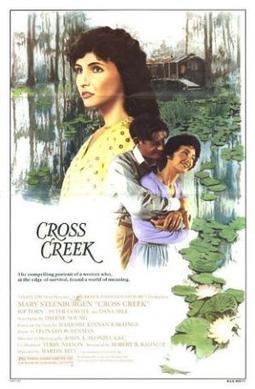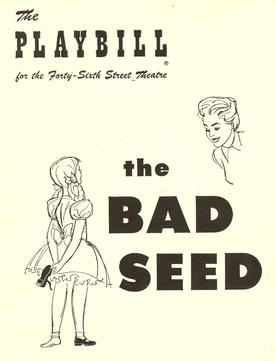Plot summary
The story concerns a woman, Lulu, who lives with her sister's family, essentially acting as a servant. She does not complain about her position but is not happy. When her brother-in-law's brother, Ninian, comes to visit, there is a certain attraction between them. While joking around one evening they find themselves accidentally married, due to the laws of the state requiring little more than wedding vows to be recited while a magistrate is in the room for a marriage to count as legal. On learning this, Ninian and Lulu decide they like the idea of being married and choose to remain together. However, within a month, Lulu is back home, having discovered that Ninian was already legally married: 18 years prior he had wed a girl who left him after 2 years, but he had forgotten about it. Lulu considers this a reasonable story, but her brother-in-law, Dwight, insists that it would be a humiliation to the family to reveal such a thing, and insists that she tell everyone instead that Ninian grew bored with her and left her. Lulu is unable to see why this should be a less humiliating story, and begins to complain about her circumstances for the first time. She also notices that her teenage niece, Di, is unhappy, and also seems to be trying to use marriage as a way to escape her circumstance. Lulu eventually has to prevent Di from eloping, and is finally inspired to move out of her sister's home and live independently.
Adaptations
Gale first adapted the novel for a play that opened on Broadway on December 27, 1920, starring Carroll McComas.
Two endings were written for the play, the original as seen in December 1920 (and the ending that won Gale the Pulitzer Prize from Drama; the first woman ever to do so) has Lulu starting a life on her own and undertaking adventures of her own as we hear in her final lines, "Good-by. Good-by, all of you. I'm going I don't know where-to work at I don't know what. But I'm going from choice!"
The revised ending is more typical and would have been a bit more commercially acceptable and far less challenging to the audiences of the day. In this ending, Ninian appears just as Lulu decides to go off on her own life to work and live elsewhere. He asks her forgiveness and she agrees saying "I forgave you in Savannah, Georgia."
In 1921 the work was adapted for a silent film of the same name by Clara Beranger, directed by William C. deMille, starring Lois Wilson, Milton Sills, Theodore Roberts, Helen Ferguson, Mabel Van Buren, Ethel Wales and May Giraci.

Woman of the Year is a 1942 American romantic comedy-drama film directed by George Stevens and starring Spencer Tracy and Katharine Hepburn. The film was written by Ring Lardner Jr. and Michael Kanin, and produced by Joseph L. Mankiewicz.

Funny Girl is a musical with score by Jule Styne, lyrics by Bob Merrill, and book by Isobel Lennart, that first opened on Broadway in 1964. The semi-biographical plot is based on the life and career of comedian and Broadway star Fanny Brice, featuring her stormy relationship with entrepreneur and gambler Nicky Arnstein.

Song and Dance is a musical comprising two acts, one told entirely in "Song" and one entirely in "Dance", tied together by a unifying love story.

Margaret Dumont was an American stage and film actress. She is best remembered as the comic foil to the Marx Brothers in seven of their films; Groucho Marx called her "practically the fifth Marx brother."

The Age of Innocence is a 1920 novel by American author Edith Wharton. It was her eighth novel, and was initially serialized in 1920 in four parts, in the magazine Pictorial Review. Later that year, it was released as a book by D. Appleton & Company. It won the 1921 Pulitzer Prize for Fiction, making Wharton the first woman to win the prize. Though the committee had initially agreed to give the award to Sinclair Lewis for Main Street, the judges, in rejecting his book on political grounds, "established Wharton as the American 'First Lady of Letters'". The story is set in the 1870s, in upper-class, "Gilded Age" New York City. Wharton wrote the book in her 50s, after she was already established as a major author in high demand by publishers.

Zona Gale, also known by her married name, Zona Gale Breese, was an American novelist, short story writer, and playwright. She became the first woman to win the Pulitzer Prize for Drama in 1921. The close relationship she had with her parents set the tone for her writing and her personal life. Her books based upon her home town were found to be charming and had an intimate sense of realism, in which she captures the underlying feelings and motivations of her characters. All of her works were written under her maiden name, Zona Gale.

Cross Creek is a 1983 American biographical drama romance film starring Mary Steenburgen as The Yearling author Marjorie Kinnan Rawlings. The film is directed by Martin Ritt and is based in part on Rawlings's 1942 memoir Cross Creek.

Lost in Yonkers is a play by Neil Simon. The play won the 1991 Pulitzer Prize for Drama.
Three Tall Women is a two-act play by Edward Albee that premiered at Vienna's English Theatre in 1991. The three unnamed women, one in her 90s, one in her 50s, and one in her 20s, are referred to in the script as A, B, and C. The character of A, the oldest woman, is based in part on Albee's mother. In the first act, B is the caretaker and C is the lawyer for A, while in the second act they become personifications of A from earlier in her life.

William Churchill deMille, also spelled de Mille or De Mille, was an American screenwriter and film director from the silent film era through the early 1930s. He was also a noted playwright prior to moving into film. Once he was established in film he specialized in adapting Broadway plays into silent films.

Lenore Ulric was a star of the Broadway theatre as well as Hollywood films of the silent-film and early sound era.

Elizabeth S. "Lisa" Kron is an American actress and playwright. She is best known for writing the lyrics and book to the musical Fun Home for which she won both the Tony Award for Best Original Score and the Tony Award for Best Book of a Musical. Fun Home was also awarded the Tony Award for Best Musical in 2015 and the 2014 Obie Award for writing for musical theater.

Ethel Wales was an American actress who appeared in more than 130 films during her 30-year career.

Clara Beranger was an American screenwriter of the silent film era and a member of the original faculty of the USC School of Cinematic Arts.

The Old Maid is a 1934 play by American playwright Zoë Akins, adapted from Edith Wharton's 1924 novella of the same name. The play as published has six "episodes", covering twenty-one years of time. It has a large cast, and three settings; one is used for the last four episodes (scenes). The story concerns two women, cousins, who allow rancor over a lost love to become a struggle for the illegitimate daughter of one.
Miss Lulu Bett is a 1920 play adapted by American author Zona Gale from her novel of the same title.

Miss Lulu Bett is a 1921 American silent comedy drama film based on a 1920 play and bestselling novel of the same name by Zona Gale. The screenplay was written by Clara Beranger, and the film was directed by William C. deMille. The play won the 1921 Pulitzer Prize for Drama.

Look After Lulu! is a farce by Noël Coward, based on Occupe-toi d'Amélie! by Georges Feydeau. It is set in Paris in 1908. The central character is an attractive cocotte, Lulu, whose lover is called away on military service; the plot involves libidinous foreign royalty, a mock wedding that turns out to be real, people hiding under beds and in bathrooms, and a happy ending.

The Bad Seed is a 1954 play by American playwright Maxwell Anderson, adapted from the 1954 novel of the same name by American writer William March.
Rainha da Sucata is a Brazilian telenovela that first aired on TV Globo from April 2 to October 26, 1990, in 179 episodes.

















